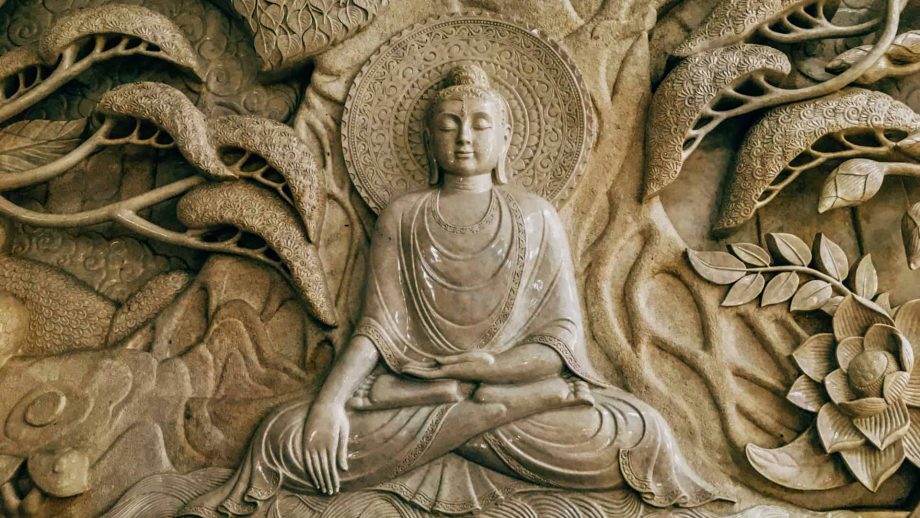The term Prajna originates from Sanskrit — the ancient language of Buddhism — and is composed of two terms. “Pra” refers to “before” and the “jna” means “knowledge”.
Together, these two terms signify profound knowledge, before knowledge or root knowledge.
The meaning of Prajna is translated as intuitive wisdom, perfect knowledge, intelligence, or deep understanding. Prajna is considered a kind of knowing that is beyond the intellect and comprehension of the human mind.
In modern terms, Prajna can be described as letting things be as they are and accepting change in life without attachment.
Practising prajna gives you the freedom to live stress-free and experience the simplicity of life as is. In attaining this higher perception you are granted the wisdom of Prajna (inner knowing).
Prajna is the sixth paramita (perfection) of discriminative awareness or insight. Profound knowledge, perfect knowledge or wisdom, is not latent or passive intelligence; it’s a penetrative intelligence that provides guidance and vision to the other paramitas.
How Can We Access the Meaning of Prajna?
Prajna comes after the first five paramitas. The fifth paramita is known as Dhyana and it means meditative stability or mental quietude (chan, Zen, Shamatha, Dhyana). This is a very vital state of mind that resides in complete stillness, peace, and can let us perceive clearly without any obscurities. Prajna can only be accessed from this state of zen awareness.
In order to achieve this state of serene knowledge, deep meditation can never be bypassed.
Bodhisattva is the Sanskrit term for anyone who is motivated by great compassion to attain Buddhahood. Since Prajna is the sixth paramita when following the bodhisattva path in the Buddhist concept, it is commonly referred to as understanding or wisdom that can bring about enlightenment and extinguish afflictions.
This field of pure consciousness is beyond beliefs, imaginations and concepts. Therefore, it is critical to understand that the intellect cannot grasp Prajna because the intellect can only reason in a subjective way by creating and comparing concepts.
Explore the Three Prajnas
The first ancient society to effectively conceptualize and comprehend the Prajna was the Mahayana – one of the main existing branches of Buddhism. There are three main levels of Prajnas involved in the process of development in the bodhisattva path.
The three levels of the Prajna of mindfulness include:
Prajna of listening or studying, Prajna of contemplating and Prajna of meditation or development of realization.
1. The Prajna of listening This is commonly known as the Prajna of studying Dharma – the basic principles of cosmic or individual existence. This process is totally dependent on the conceptual mind, language and communication. This stage mainly involves studying, hearing and listening in order to develop and internalize the prajna of deep understanding.
2. The Prajna of contemplating This is basically what we go through in the process of internalizing and understanding the knowledge we receive. In this stage of contemplating, we completely absorb and understand Buddha’s teachings which eventually become our living reference.
3. Prajna of meditation The Prajna of meditation is commonly known as resting meditation primarily because one develops realization by going beyond conceptual meditation and eventually rests in the state of pure awareness and non-dual experience. By realizing the genuine Prajna of realization, we eventually develop mindfulness and pure awareness.
The Order of Practice
Paving the path of bodhisattva (“Buddhas-to-be”) can be divided into two smaller paths;
- Path of Prajna
- Path of skilful means (conscious voluntary action)
The Path of Prajna
I. Develop the mind of enlightenment (mind of Bodhi) that enables you to go into the actual practice of Bodhisattva which emphasizes the importance of determination and faith.
II. Progress into the practice of bodhisattva which mainly emphasizes benefiting other people for the sake of universal growth. However, the accumulation of wisdom and virtues is not only for your own benefit but also essential in practising compassion.
III. Once you are equipped with balance, wisdom and virtues in the practice of wisdom and compassion, you attain the wisdom of non-discrimination and equanimity. This is known as the wisdom of emptiness (stage of Prajna).
The path of Prajna is the realization of the essential wisdom of emptiness which represents the development of the mind, especially in preparation to embark on the path of skilful means.
IV. Wisdom of emptiness: After developing the supreme mind for the vital path of skilful means, the Bodhisattva emphasizes on the adornment of a pure land and relieving suffering and live stress-free. This is often achieved by simply accepting the simplicity of life as is. This is the practice of compassion with wisdom and loving-kindness.
V. The stage of perfection: This is the realization that the supreme Bodhi is the wisdom of all wisdom; the fruit of enlightenment. You can only comprehend Prajna or real intelligence, real wisdom through meditation.
This is the main reason why the six paramitas are given in a specific definitive order. Therefore, it is essential to meditate with intention in order for your intellect to grasp the nature of Prajna. The knowledge and meaning of Prajna is accessed through the true stability of the mind.

